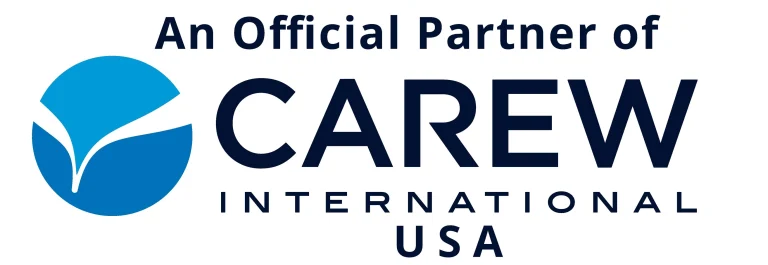When it comes to a sales process, deal closing scenarios are majorly shrouded by misconceptions. Some believe it’s a matter of pure charisma or relentless pressure. Others see it as a one-time transaction, neglecting the importance of long-term client relationships.
But the reality of successful sales is far more graceful. It requires a strategic approach that prioritizes understanding customer needs, implementing thoroughly planned trust building techniques, and skillfully turning the negotiations in your favor. But for that, we must resolve some myths before moving to the actual actionable tips.
Keep reading to discover how effective sales training in Mumbai, coaching can help you succeed.
Debunking Common Misconceptions
Myth1: Sales is all about focusing on deal closures
Building trust and rapport with potential clients is the mandatory standard for long-term success. Satisfied customers become loyal advocates, leading to repeat business and referrals. You must aim to be a salesperson who treats every interaction as an opportunity to build a genuine connection. They actively listen to client concerns, offer helpful advice even if it doesn’t lead to an immediate sale, and consistently deliver exceptional service. This approach fosters trust and loyalty, turning one-time transactions into enduring partnerships.
- The more calls you make, the more sales you’ll get
Effective sales strategies focus on quality interactions with qualified leads. Blindly reaching out to anyone and everyone is a waste of time and resources. Every decision in business is influenced by numbers, learning from that – sales teams must have access to a wealth of information about potential clients. Use CRM tools that can identify leads who are a good fit based on factors like industry, company size, and buying history. This precision allows salespeople to repurpose their outreach and messaging for maximum impact.
- Price is the only factor that matters
While price is a consideration, value proposition trumps pure cost. Clients are more likely to invest in solutions that demonstrably solve their problems and deliver a strong return. Focus on quantifying the value your product or service brings to the table. Can you help them save time, improve efficiency, or increase revenue? Highlighting these quantifiable benefits positions price as an investment rather than a barrier.
Common Mistakes to Avoid
Learning from our mistakes is the best way to build strong strategies. So, if you catch yourself making one of these mistakes, take note of this list made by our best sales trainer in India! Make a mental vow to avoid it next time:
- Low Visibility: Potential clients should be able to find you easily through search engines and social media platforms. Develop marketing ideas for sales which can showcase your expertise and educate potential clients about the challenges you solve. Regularly publish blog posts, articles, and case studies that demonstrate the value you deliver.
- Unprepared Calls and Meetings: Failing to research your prospect and their business beforehand creates a poor impression. Take the time to thoroughly understand your client’s industry, their specific challenges, and their buying journey. Anticipate their questions and concerns and come prepared with relevant data and solutions. This sales technique demonstrates your professionalism and commitment to their success.
- Targeting the Wrong Person: This in one tip you will commonly find from several sales training companies in India, and we want you to take it seriously! Identify the key decision-makers and influencers within a company. Pitching someone who lacks the authority to make a decision wastes everyone’s time. Utilize tools like LinkedIn and company websites to identify the right people to connect with.
Strategies for Negotiation Success
Lead Negotiations: Set the agenda, frame the conversation, and present your offer with confidence while remaining open to client input. This doesn’t mean being domineering, but rather guiding the conversation towards a mutually beneficial outcome.
Build Value: Focus on how your product or service addresses the client’s specific needs and objectives. Quantify the benefits whenever possible. For instance, instead of simply saying your software improves efficiency, explain how it can save them 20% on labor costs per year.
Manage Emotions: Maintain composure and professionalism throughout the negotiation process. Acknowledge and address client concerns calmly and rationally. Getting flustered or defensive will only damage the relationship.
Offer Trades: Explore creative solutions that satisfy both parties. Be prepared to offer concessions in exchange for something valuable to your client. This might involve adjusting pricing, offering additional features, or extending payment terms.
Embrace Silence: Don’t feel pressured to fill every quiet moment. Strategic pauses can encourage the client to elaborate on their concerns or concessions. Sometimes, silence is a powerful negotiation tool.
Walk Away When Necessary: Knowing when to politely disengage from a negotiation protects your company’s interests and preserves goodwill. If a client is making unreasonable demands
Conclusion
Equip yourself for sales success, regardless of your role! Develop your communication, negotiation, and relationship-building capabilities through the actionable steps provided in this blog.
People want solutions that tackle their specific problems. If you can establish yourself as the go-to problem solver, you’ll be unstoppable in any industry seeking sales support.
But to figure such figure you need to work on your fundamental from scratch and our trainers at B-More Consulting provide this in our session for sales training in India. Contact us today to find out more about the same!
Frequently Asked Questions:
1. What is a Sales Training Company?
A sales training company offers programs designed to boost a salesperson’s selling abilities and enhance a manager’s coaching skills. Bmore Consulting, based in Mumbai, specializes in developing and refining sales skills and techniques, helping individuals and teams reach their full potential in the sales field.
2. How many types of sales training are there?
Sales training programs typically fall into four categories: inside sales, field sales, service sales, and sales management. Although program names can differ, they generally focus on these key areas to enhance specific sales skills and techniques as per the specified sales roles and responsibilities within an organization.
3. How are sales people trained?
Sales managers often provide various training opportunities for their teams. These include attending seminars and workshops, enrolling in online courses, and bringing in expert sales trainers for customized sessions. These methods equip salespeople with new skills and techniques to enhance their selling effectiveness.
4. Should I hire sales trainer?
Sales training can equip them to adapt. Trainers offer specialized knowledge on new products and market nuances, helping your team overcome challenges and excel in these areas.
Related Topics
Understanding Buyer Psychology: A Crucial Aspect of Sales Professionals
The Top Sales Leadership Training Programs Every Sales Manager Should Consider in 2024
Crafting Victory: The Definitive Path to Corporate Sales Training





